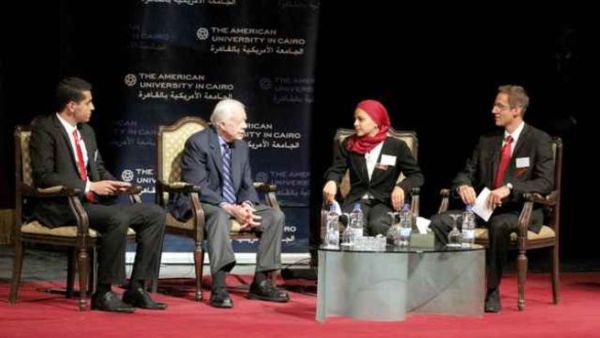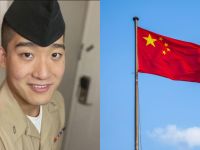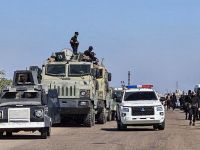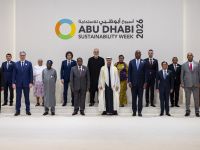President Jimmy Carter speaks to AUC students about democracy, peace and human rights

At The American University in Cairo’s John D. Gerhart Center for Philanthropy and Human Rights annual public lecture, winner of the Nobel Peace Prize and former U.S. President Jimmy Carter spoke to University students, faculty, civil society leaders and dignitaries, including Egypt’s minister of higher education andminister of scientific research, as well as the ambassadors of the United States of America and Canada. In the lecture,“Reflections on Democracy, Human Rights and Peace,” at the Main Hall of the Cairo Opera House, Carter distilled his views on the Arab-Israeli peace stalemate and the crucial role of human rights as nations are transiting from dictator ships to democracy. After giving his speech, Carter responded to questions during a discussion on stage with three AUC student leaders.
Commenting on selecting Carter for the annual public lecture, Barbara Ibrahim, director of Gerhart Center, noted that “For former President Carter, even though he has monitored many previous elections from Indonesia to Palestine, observing Egyptians as they choose their first freely elected president has been his long time dream. We could not think of a better person to inspire the next generation of leaders in Egypt with the values of active citizenship and respect for the rights of all, regardless of gender or religion.
In his lecture, Carter expressed his appreciation for being in Egypt during such defining moment in its history. “I'm overwhelmed with gratitude for the honor of participating in what is truly a historic event and that is bringing freedom, democracy and human rights to a great nation with historic record down to centuries and millennia of leadership,” Carter said addressing the audience.
Regarding the role of the military in the coming period, Carter noted: “Egypt's military must accept a new role. In the U.S., the army is respected, but ultimate rule remains civilian and the president is the chief commander of the army.
When asked about the amendment of the peace treaty in light of new political developments, Carter said: "In any treaty between two nations, there has to be an agreement on every word in a treaty. So the treaty can't be amended by one side.” Carter noted that he has met with Muslim Brotherhood representatives and other political groups, and they all realize that the treaty, if amended, it has to go through legal processes. “So if there are minor changes that need to be made in light of changes in circumstances, the leader of Egypt should know that they should get Israel to agree,” he said, adding thatif they decide to abandon the treaty, it would mean the end of peace. “I believe no Egyptian or Israeli leader would want to do that," Carter said.
Carter was elected as the 39th president of the United States in 1976, serving for four years,during which he helped broker the Camp David Accords, the Egypt-Israel Peace Treaty and an arms control treaty with the Soviet Union. In 1982, he became a distinguished professor at Emory University in Atlanta, where he founded the Carter Center. The center’s mandate is to promote peace, human rights, and economic and social justice around the world. He has been personally involved in resolving conflicts, protecting human rights where they are in danger and promoting a positive role for religious leaders in advancing gender equity. In 2002, Carter was awarded the Nobel Peace Prize for his efforts to promote international peace. He is the author of 25 books, including Palestine Peace Not Apartheid (2006), We Can Have Peace in the Holy Land: A Plan That Will Work (2009) and White House Diary (2010).
Background Information
American University of Cairo
Founded in 1919, AUC is a leading English-language, American-accredited institution of higher education and center of intellectual, social and cultural life of the Arab world. Its community of students, parents, faculty and staff, trustees, alumni and other generous sponsors represent more than 60 countries. The University stands as a crossroads for the world’s cultures and a vibrant forum for reasoned argument, spirited debate and understanding across the diversity of languages, facilities and human experiences.







